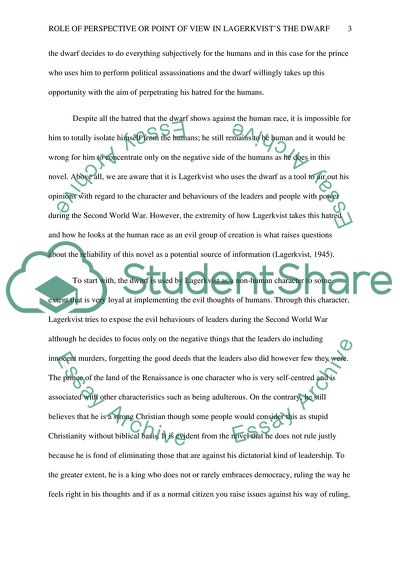Cite this document
(Role of Perspective or Point of View in Lagerkvists The Dwarf Book Report/Review, n.d.)
Role of Perspective or Point of View in Lagerkvists The Dwarf Book Report/Review. https://studentshare.org/literature/1878919-address-the-role-of-perspective-or-point-of-view-in-lagerkvists-the-dwarf
Role of Perspective or Point of View in Lagerkvists The Dwarf Book Report/Review. https://studentshare.org/literature/1878919-address-the-role-of-perspective-or-point-of-view-in-lagerkvists-the-dwarf
(Role of Perspective or Point of View in Lagerkvists The Dwarf Book Report/Review)
Role of Perspective or Point of View in Lagerkvists The Dwarf Book Report/Review. https://studentshare.org/literature/1878919-address-the-role-of-perspective-or-point-of-view-in-lagerkvists-the-dwarf.
Role of Perspective or Point of View in Lagerkvists The Dwarf Book Report/Review. https://studentshare.org/literature/1878919-address-the-role-of-perspective-or-point-of-view-in-lagerkvists-the-dwarf.
“Role of Perspective or Point of View in Lagerkvists The Dwarf Book Report/Review”. https://studentshare.org/literature/1878919-address-the-role-of-perspective-or-point-of-view-in-lagerkvists-the-dwarf.


